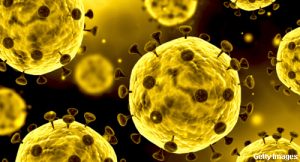 Hesitancy about COVID-19 vaccination persists nationwide, although it varies by region and sociodemographic group, according to first-quarter 2021 survey data from the U.S. Department of Health and Human Services (HHS):
Hesitancy about COVID-19 vaccination persists nationwide, although it varies by region and sociodemographic group, according to first-quarter 2021 survey data from the U.S. Department of Health and Human Services (HHS):
- About 8% of Americans said they were “strongly hesitant” to be vaccinated;
- The greatest decreases in vaccine hesitancy were among adults between 18 and 24 years old (from 26% in January to 18% in March), and Black adults (from 34% in January to 18% in March);
- The highest rates of vaccine hesitancy were among non-college-educated, multi-racial adults (27%); non-college-educated, non-Hispanic Blacks (21%); and non-college-educated, non-Hispanic whites (20%); and
- Vaccine hesitancy is higher in the South, Great Plains and Alaska.1
Rheumatologists say taking a proactive, encouraging approach with patients about vaccination works—most of the time.
“If patients don’t bring up vaccines, I bring it up,” says Don Stromquist, MD, a rheumatologist with University of Utah Health practicing in Salt Lake City and Farmington. “I’m very gratified by the way my patients do bring it up. The great majority of my patients have either had a vaccine or are planning to get one.”
Although he and other rheumatologists say most of their patients are being vaccinated against COVID-19, hesitancy or fear persists among a few. To shore up trust in vaccines, rheumatologists say nonjudgmental conversations and plain-language answers to questions are needed.
There is a newer worry: Recent evidence reveals a blunted antibody response to the COVID-19 vaccines among patients taking certain immunomodulatory therapies. The ACR has updated its COVID vaccine guidance to help improve antibody response among at-risk patient populations.2
Fear
Some patients express concerns about post-vaccine adverse effects because of their disease or current treatment, as well as worries about side effects they read about on social media.
“I am trying to just listen to their questions and concerns,” says Dr. Stromquist. “I have only had a few patients who were dead-set against getting a COVID vaccine. They ask the typical questions and may mention things they have seen in the media. Or they may say, ‘I will see if my friends get it and then see how they respond.’ I try to respond to them, validate their worries and hear them out. Building trust is so important.”
Dr. Stromquist and other rheumatologists say some patients worry the vaccine will cause an autoimmune disease flare.
“We have told our patients with rheumatic diseases—especially patients with lupus—in the past not to get live vaccines, because it could cause a disease flare,” says Julie J. Paik, MD, MHS, assistant professor of medicine at the Johns Hopkins Myositis Center, Baltimore. “But I explain to them that the new mRNA vaccines for COVID are not live-virus vaccines.
“I would say a minority of my patients are vaccine hesitant. When I explain that it is not a live vaccine, and that it would be worse for them if they got COVID, that helps them.”
Dr. Stromquist says most of his patients are well informed about the vaccines due to extensive news coverage of their development and clinical trial results in the past year, but some share concerns with him based on media reports regarding thrombosis risk with certain vaccines or genetically altered components of some vaccines.
In St. Louis, Alfred Kim, MD, PhD, Washington University School of Medicine Division of Rheumatology, also encounters vaccine hesitancy among some patients. He says patients most commonly express concerns about the “risk of flares, side effects and the lack of long-term safety data. They’ll say, ‘I probably won’t mount a response, so why get it?’ Or they’ll express a lack of readiness, commenting, ‘You got it because your health is stable, but mine is not. I do not want to rock the boat.’ Misinformation, such as government tracking, or belief that the virus and COVID-19 aren’t real, are infrequent reasons.”
Long COVID & Hesitancy
At her clinic at the Hospital for Special Surgery, New York City, Iris Navarro-Millan, MD, says most of her patients with rheumatic diseases have been eager to be vaccinated, because they were afraid of severe illness or death from COVID in an area especially hard-hit early in the pandemic.
She sees more vaccine hesitancy among new patients with lingering COVID-19 symptoms that mimic post-infectious rheumatic disease. While these “COVID long-hauler” patients don’t have autoimmunity, they are referred to her practice because, as a rheumatologist, she is familiar with some of their presenting symptoms, which often resemble those seen in post-infectious arthritis or rheumatic fever, such as glomerulonephritis, hematologic and neurological manifestations, as well as cognitive symptoms (e.g., lack of concentration) or chronic fatigue.
“We are finding that getting a COVID vaccine improves long-COVID symptoms,” Dr. Navarro-Millan says. However, she continues, “I have seen five patients like this who do not want to get a vaccine. They can’t really articulate why. It’s just, ‘I don’t know.’ I probe them to find out why. One person had COVID twice and is still having chronic fatigue symptoms, but still doesn’t want to get the vaccine. She says she has to think about it. She couldn’t put in words why she doesn’t want to get the vaccine, except to say, ‘It’s my right to choose.’ It’s the same with the others.”
Rheumatologists may find that some patients have misconceptions about the vaccines’ contents or safety that are impossible to alter, says Dr. Kim.
“At the end of the day, if my patient isn’t ready to get the vaccine yet, I do not force it,” Dr. Kim says. “Vaccine readiness takes time for some, so I want to make sure we all respect this.”
Pediatric Patients & Parents
On May 10, the U.S. Food & Drug Administration expanded the emergency use authorization for the Pfizer-BioNTech COVID-19 vaccine to include adolescents from ages 12 to 15.3 Almost immediately, many of newly eligible patients with autoimmune diseases and their parents expressed interest in vaccination, says Sampath Prahalad, MD, chief of pediatric rheumatology at Children’s Healthcare of Atlanta.
“They want to know more about the different types of vaccines and whether they are safe,” says Dr. Prahalad, who has encountered some vaccine hesitancy as well. “Some have concerns about how quickly the vaccine was developed. Others feel not enough time has passed to know about long-term side effects. Some feel that COVID-19 is a mild disease and wonder if a vaccine is necessary.”
To respond to these concerns, he explains that while children generally experience milder disease than adults with COVID-19, some pediatric patients experience serious disease and even require hospitalization, including 3,700 in the U.S. with multisystem inflammatory syndrome in children (MIS-C) caused by an abnormal immune response to the coronavirus infection.
“For these reasons, vaccination with the mRNA vaccines is recommended. We explain that the trials of these vaccines involved a large number of subjects, and we have experience with over 200 million doses of the mRNA vaccines being administered in the U.S.,” he says.
Dr. Prahalad allays the fears of patients or parents worried about vaccine side effects, explaining that most after-effects are mild, such as injection site pain and swelling. “We also explain that the best way to protect your children younger than 12 is for the parents and other eligible family members to get vaccinated, forming a ring of protection for vulnerable children,” he says.
When Dr. Navarro-Millan talks with vaccine-hesitant patients, she explains the vaccine provides peace of mind. Patients can safely visit their family and friends again, she says, framing the conversation in personal terms rather than stressing efficacy data.
“I tell my patients, ‘That is what I want for you—that human connection that we have all been missing,’” she says. “Patients just want to have a connection with a real person when they talk to their doctor. They don’t want to talk about statistics.”
Efficacy
When Dr. Navarro-Millan’s hospital recently conducted vaccine education webinars in both English and Spanish, patients asked if they would have a lesser response to the COVID vaccine because of their rheumatic disease therapies. She told her patients on B cell therapies, such as rituximab, that they may have a lesser response and could require a booster vaccine dose in the future to achieve optimal protection against COVID.
Patients’ concerns may be well founded, according to recent data. Dr. Paik is one of the co-authors of a new study of 123 patients with rheumatic diseases who were tested for COVID-19 antibodies at baseline and prior to their second mRNA vaccine dose between Jan. 8 and Feb. 12, 2021. Their preliminary data, shared in a letter to Annals of the Rheumatic Diseases, showed that patients on rituximab and mycophenolate regimens were less likely to have an antibody response, while those on methotrexate and tumor necrosis factor (TNF) inhibitors had detectable antibodies.4
In another preprint study of 133 patients with chronic inflammatory diseases on various immunosuppressive therapies, those on B cell-depletion regimens had a 36-fold reduction in vaccine antibody response, and patients on glucocorticoids had a 10-fold reduction. In this study, Dr. Kim and his colleagues found that patients treated with immunosuppressive therapies—jakinibs and antimetabolites, including methotrexate—exhibit impaired SARS-CoV-2 vaccine-induced immunity, with glucocorticoids and B cell depletion therapy more severely impeding optimal responses.5 Other targeted therapies, such as TNF, interleukin (IL) 12, IL-23 and integrin inhibitors, had only modest impacts on antibody formation and neutralization.
According to the ACR guidance, to optimize vaccine response, rheumatologists may advise patients on the following therapies to hold their medications for a short time after their vaccines if they have stable disease:2
- Mycophenolate: Hold for one week after each vaccine dose.
- Methotrexate: Hold for one week after each mRNA vaccine dose and for two weeks after a single-dose vaccine.
- Jakinibs: Hold for one week after each vaccine dose.
- Abatacept SQ: Hold for one week prior to and one week after the first vaccine dose only.
- Abatacept IV: Time the vaccine to occur four weeks after completed abatacept infusion and postpone next infusion for one week after the first vaccine dose.
- Cyclophosphamide IV: Schedule infusion for one week after each vaccine dose if possible.
- Rituximab: If a patient’s COVID-19 risk is low or they can mitigate risk with preventive measures, try to schedule each vaccine dose four weeks before the start of the next rituximab cycle, and then hold rituximab for two to four weeks after final vaccine dose if disease activity allows.
- Acetaminophen and NSAIDs: Hold for 24 hours before vaccination.
“In my patients on mycophenolate, I suggest we hold their medication for one week after their vaccine. We believe that by holding such immunosuppressants, the response may be better,” says Dr. Paik.
Dr. Kim stresses to his hesitant patients that because COVID-19 is more severe and deadly in some immunosuppressed patients, and the safety of vaccination appears to be excellent for immunosuppressed patients, he strongly recommends vaccination for them.
“Patients may balk since the vaccine may not be effective in them. Our data suggests this is an uncommon outcome, though. Around 85% had good responses. So again, we continue to preach getting vaccinated as the most frugal action,” he says.
Both Dr. Kim and Dr. Paik say current efforts to study the safety and immunogenicity of an additional booster of vaccine, including by the National Institutes of Health, are important. “Substantial work is being put into determining how to best protect those people whose original vaccine response was poor,” says Dr. Kim.
Benefits Greater than Risk
Dr. Prahalad says he is aware of emerging reports on suboptimal vaccine responses in adult patients, but he emphasizes the benefits of COVID-19 vaccination are greater than the risks to his young patients, especially the risk of hospitalization due to MIS-C.
“Generally, individuals who have been vaccinated tend to have milder disease if they are infected, which favors immunization over natural infection. Fortunately, the science is moving rapidly, and so if reports suggest that individuals on immunosuppression need booster doses, we will recommend that to ensure protection,” Dr. Prahalad says.
Dr. Stromquist says that once he explains how the vaccines work and their safety, his patients usually get a shot. He just tells them he is happy about their decision.
“It does not help to browbeat anyone, because some people may be worried and scared. I tell them that it is okay to feel worried and scared. I think validation is important,” Dr. Stromquist says.
Susan Bernstein is a freelance journalist based in Atlanta.
References
- U.S. Department of Health and Human Services Office of the Assistant Secretary for Planning and Evaluation. Vaccine hesitancy for COVID-19: state, county and local estimates. 2021 May 28.
- Curtis JR, Johnson SR, Anthony DD, et al. American College of Rheumatology Guidance for COVID-19 vaccination in patients with rheumatic and musculoskeletal diseases: Version 2. Arthritis Rheumatol. 2021 Jun 15. Early view.
- Coronavirus (COVID-19) Update: FDA authorizes Pfizer/BioNTech COVID-19 vaccine for emergency use in adolescents in another important action in fight against pandemic. U.S. Food and Drug Administration. 2021 May 10.
- Boyarsky BJ, Ruddy JA, Connolly CM, et al. Antibody response to a single dose of SARS-CoV-2 mRNA vaccine in patients with rheumatic and musculoskeletal diseases. Ann Rheum Dis. 2021 Mar 23;annrheumdis-2021-220289.
- Deepak P, Kim W, Paley MA, et al. Glucocorticoids and B cell depleting agents substantially impair immunogenicity of mRNA vaccines to SARS-CoV-2. medRxiv. 2021 Apr 9. Preprint.







